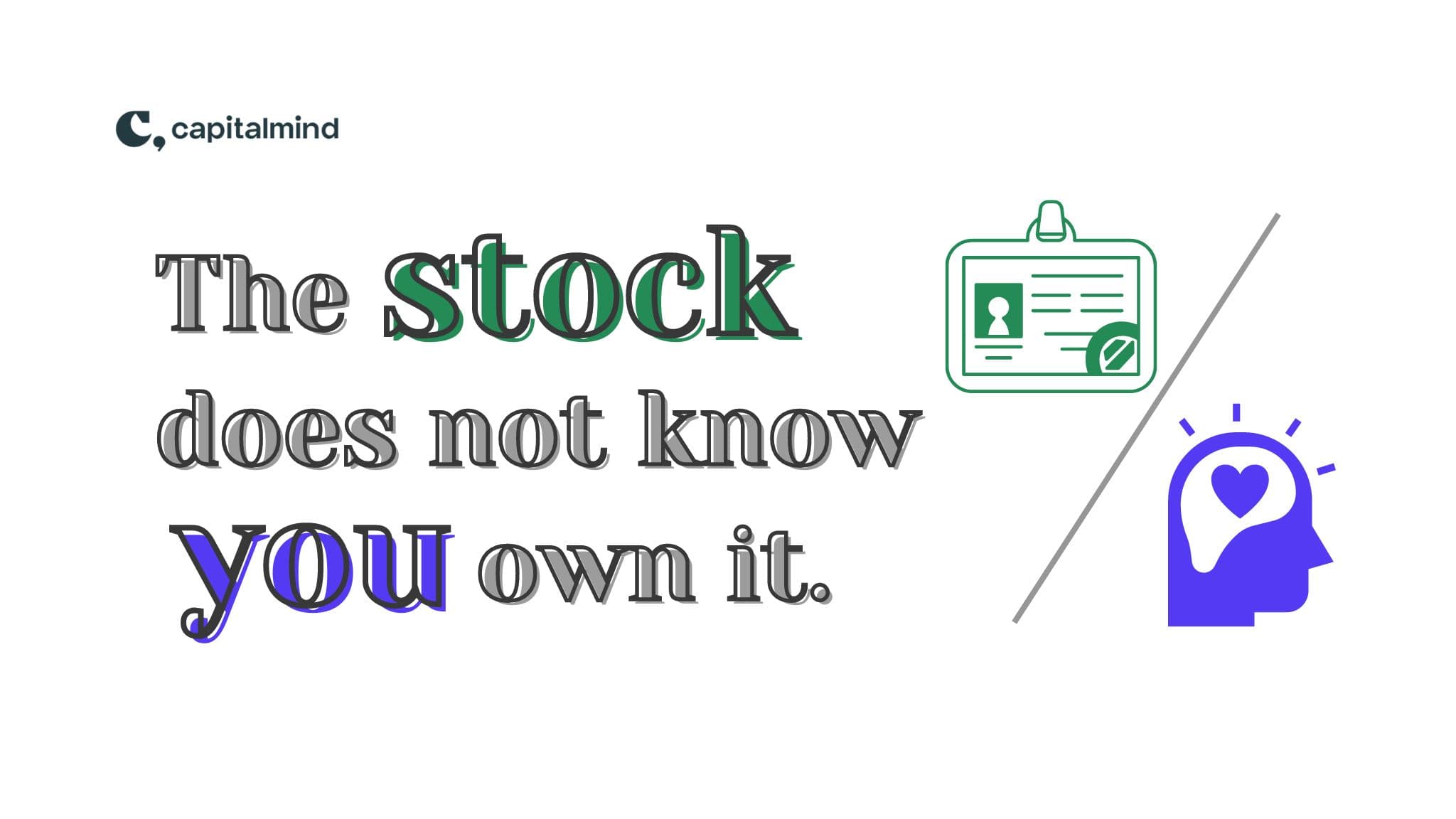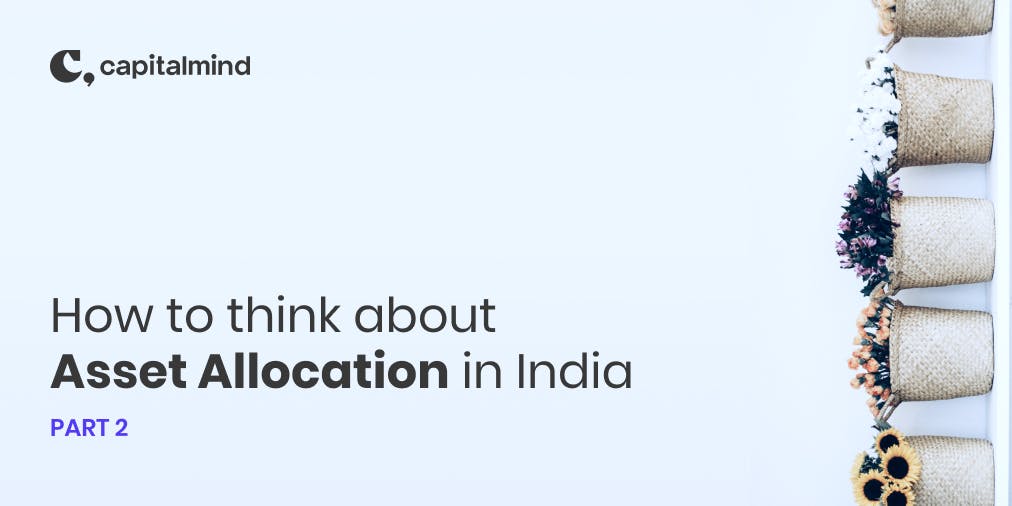(category)Deepak's Memos
July 2024: The Sum of All FearsJuly 2024: The Sum of All Fears
We explore the fear of unpredictability and how it pushes you to act. It's never more intense than when the markets look "up". Oh and we've somehow managed to bring in Roger Federer and Trump.
Deepak Shenoy•

A comment in a discussion recently triggered a thought that I will explore in this letter. It's about the fear of volatility. The interviewer asked me the question:
"What would you tell someone who's new to the market today, when markets look so high?"
It struck me then. I have heard this question way too many times; in fact, we've heard it so much that Anoop made a video of this in December 2022 with the facts and figures which make it painfully obvious that investing at new highs is not really bad at all. Since then, the index (Nifty) is up 33% from 18,000 to 24,000, in 1.5 years. But the problem isn't past data. You could shout this from the rooftops, but people will still feel jittery at market highs. And there's a good reason for it.
We like things to be steady and predictable, and nearly everywhere else, when life becomes unpredictable, we feel the need to take action. We get a salary every month. If our salary was based on how many eyeballs viewed our web sites, that is unpredictable, so we have to take action to increase those eyeballs. If the eyeballs were to go up rapidly, because perhaps, Donald Trump decided to quote us, we might earn a very high salary one month - but it falls down rapidly because let's face it, Donald Trump isn't going to quote us every month. That level of "volatility" - based on a factor you can't control (Donald Trump) - is unpredictable and, to some extent, undesirable. Immediately, the management decides to look at reports that are "ex-Donald-Trump" because they want a controllable metric.
Markets do not have controllable metrics. Not in the short term, for sure. Therefore, markets are unpredictable, and you cannot really easily take action that can control it. Your only action can be to sell or buy more. But we're all too geared to take some action or the other, when there is unpredictable behaviour (like a "market high"). So we want guidance on what action to take.
In a speech given about 30 years back (see video), a solid piece of advice on what to do, roughly translated:
When someone asks me for advice on stocks, I ask them how many shares they have. If they say they have 100 shares, I tell them to sell 50 and keep 50. That's not for them, it's for my own welfare.
Because if the share goes up, I can say, "See? I told you to keep 50", and if it falls, I'll say "See? At least I got you to sell 50"
(Note: The rest of that video shows you that nothing in the market has changed in 30 years. We have the same questions even now)
The subtle point is: every piece of advice seems to be a call for action. Do something, and do it now, because something is likely to happen tomorrow. This is what drives us away from long term compounding; we'll get out (that bit is easy) but we won't get back in. Not just other people, even I succumb to it - we sell a stock and then get all antsy about buying it back when it goes up beyond our sell price (in Surge India, at least. Anoop is way better with Momentum). The fear that "something will happen, but we don't know what" drives this.
But it's not like we don't know about unpredictability. Our personal lives, our feelings, they're all unpredictable. We all know that every day is a little different. You'll wake up with a pain in the lower back that lingers all day, and then you shout at someone you love, and they don't know about the pain, and you just made them sad for something that wasn't their fault, but it happens. You'll feel down in the dumps on a day for no reason at all. And then you'll feel great another day for no reason at all. People with hair longer than a finger's length have "good hair days", and "let's not talk about it". We know this, internally. We are also aware that most actions we might take, including having coffee, might not solve the situation; you just have to deal with it, and wait for a better day.
Your external appearance hides your inner fears mostly because you don't want to tell someone what you're feeling, largely because you have no idea why you're feeling that way, or because they will behave like men and try to find a solution, which makes things worse.
This thing is so well known that they have Hindi songs about it.
Tum itna jo muskura rahe ho
Kya gham hai jisko chupa rahe ho
(As much as you're smiling
what is the sadness you are hiding)
There are days when you're the pigeon, and then there are days when you're the statue. We know this. And this is, effectively, what markets are. They're an emotional roller coaster. We have no ability to influence them, meaningfully, but we can only choose to sell or buy more. Thus the question: the markets are (choose between high/low/boring). Would you advise people to buy, sell or do something else?
There is no correct answer, because the question really is: I hate that there is so much unpredictability. It was fine till the market was going up. Now they're telling me it could go down? Can I do something? Can you do something?
There are rational answers to the original question. But the answer to the real question cannot be something with data. It's more like this: Bad stuff happens. Deal with it when it does. Coffee might help, but mostly you just have to sleep it out.
I wish we could say that. But that is not the legendary dialogue we look for, so we invent ways to sound intelligent, like this:
Buy stocks that go up
What if they don't go up? Don't buy them.
I'll end this relatively short letter with something Roger Federer said in a recent speech.
"Perfection is impossible. In the 1,526 singles matches I played in my career, I won almost 80% of those matches. But what percentage of points did I win?
54%.
In other words, even top ranked tennis players win barely more than half the points they play. When you lose every second point on average, you learn not to dwell on every shot.
You teach yourself to think: 'Okay, I double faulted...it's only a point.'
'Okay, I came to the net and I got passed again...it's only a point.'
Even a great shot, an overhead backhand smash that ends up on ESPN's top 10 playlist – that too is just a point.
Here's why I'm telling you this. When you're playing a point, it has to be the most important thing in the world.
And it is. But when it's behind you, it's behind you. This mindset is crucial – because it frees you to fully commit to the next point with intensity, clarity, and focus."
You don't have to win every point. You just have to win the match. You don't have to sell on every fear. You just have to live with the madness when everyone does.
Intensely,
Deepak
Related Posts
Make your money work as hard as you do.
Talk to a Capitalmind Client AdvisorInvesting is not one size fits all
Learn more about our distinct investment strategies and how they fit into your portfolio.
Learn more about our portfoliosUnlock your wealth potential
Start your journey today




